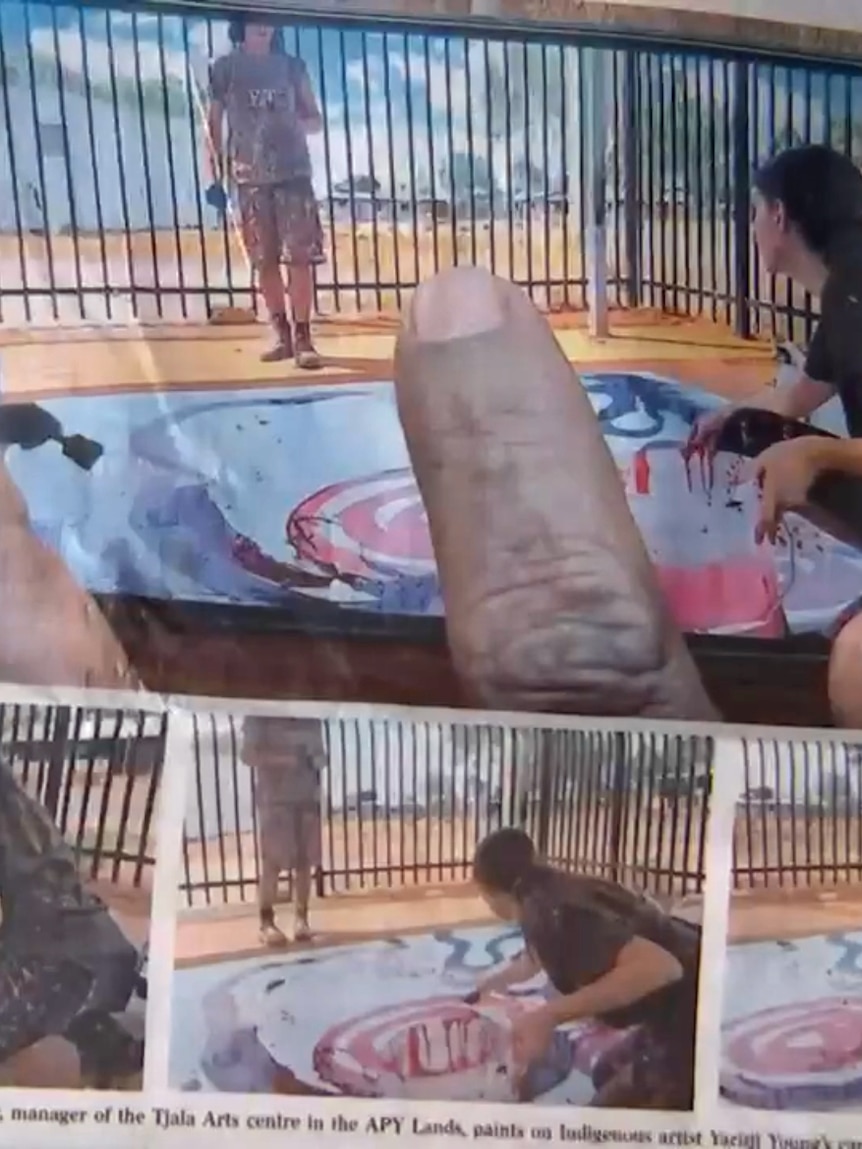The South Australian government says allegations of intervention in Indigenous artworks have been referred to “investigative agencies”.
Key points:
- The review was in response to allegations surrounding the authenticity of high-profile Aboriginal artwork
- The SA government said the review aimed to ensure the cultural integrity of First Nations art
- The APY ACC strenuously denies that any of its artists’ work was interfered with
The Office of the Registrar of Indigenous Corporations and the Australian Competition and Consumer Commission (ACCC) have been asked to investigate evidence gathered by an independent panel that looked into the allegations.
The review panel considered claims that non-Indigenous staff members had interfered in work produced by Aboriginal artists at APY Art Centre Collective (APY ACC), located on the Anangu Pitjantjatjara Yankunytjatjara (APY) Lands in South Australia’s Far North, and made efforts to conceal the activity.
The review also looked into culturally safe work practices, management practices and the collective’s terms of engagement for artists.
The government said the Office of the Registrar of Indigenous Corporations has been asked to look into “matters of governance and management practice”.
“The panel has determined that the level of information received warrants referral to relevant agencies,” it said in a statement.
It said “consumer protection and contracting matters” have been referred to the ACCC.
“This review was about ensuring that Aboriginal artists are being respected and that the integrity of their art is being maintained,” the statement read.
“We are committed to supporting our First Nations artists to share their art with the world for the future.”
APY ACC ‘strenuously’ denied allegations
In April, News Corp broadsheet The Australian published footage it said appeared to show a non-Indigenous assistant making creative decisions and painting on a depiction of the Tjukurpa — the spiritual and sacred law that governs culture.
The footage appeared to be taken at the Tjala Art Centre in South Australia’s Far North, which is part of the APY ACC.
The APY ACC has previously “strenuously” denied the allegations printed by News Corp.
“True industry experts understand the line between assistance at artists’ direction and interference with the artistic process and know that APY ACC has never crossed this line,” it said in a statement in April.
“It is grossly offensive to the many hundreds of proud Anangu who work with APY ACC to suggest otherwise, or that they would tolerate their Tjukurpa being interfered with.”
The APY ACC website says the collective and gallery are fully owned and governed by Indigenous people.
“Unlike the ‘private painting shed’ model where the goal is to maximise profits for private dealers, the APY ‘art centre’ model has one goal — to maximise the return of income to artists and their communities,” the website reads.
“Artwork showcased at the APY Gallery comes direct from art centres on the APY Lands, regional South Australia and Adelaide, so we can guarantee all artwork sold is original, authentic and ethically sourced.”
Minister commends panel
South Australian Arts Minister Andrea Michaels said she commended the panel for their work conducting the review.
“I thank them for their considered approach to the issues they were asked to review and acknowledge their referrals for thorough investigation by bodies with appropriate powers,” she said.
She also thanked those who came forward to share their experiences with the panel.
“This review was always about ensuring that Aboriginal artists are being respected and the integrity of their art is being maintained,” she said.
“I look forward to a bright future for the artists and art centres in the APY Lands and across South Australia.”




